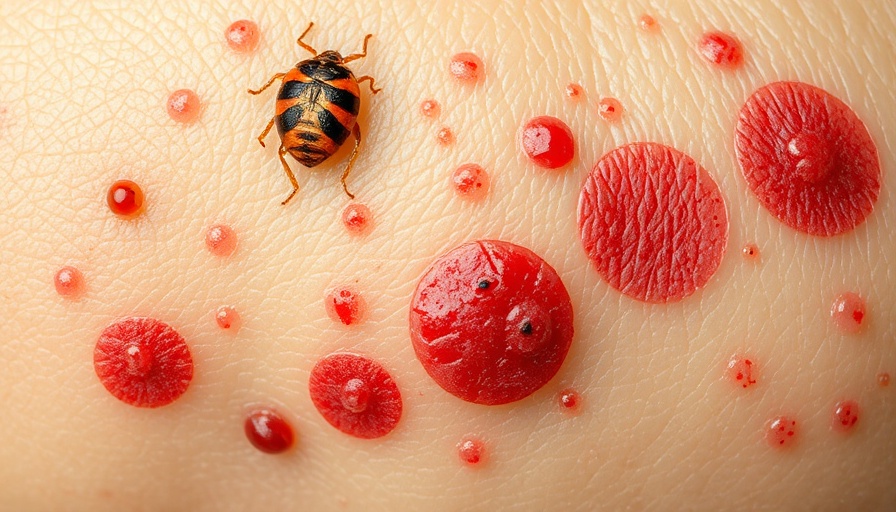
Understanding Bug Bites: A Vital Skill for Health Awareness
Bug bites can often be more than just an irritating nuisance. Recognizing and understanding them can empower you to manage your health effectively. Since not all bugs are harmless, knowing how to identify different types of bites provides critical information on when to seek medical attention. With this guide, you can learn to distinguish common bug bites and their varying symptoms.
Common Bug Bites: Identification and Symptoms
From mosquitoes to spiders, different insects leave unique marks on the skin. A mosquito bite typically presents as an itchy, round bump, while ticks, notorious for transmitting Lyme disease, might not be easily spotted. Understanding the specific features of each bite can help determine the right course of action. For example, a tick bite can lead to severe illnesses if not treated properly, emphasizing the importance of quick identification.
Dangerous Insects: When to Seek Medical Help
While many bug bites are harmless and will resolve with basic care, others can pose significant health risks. Spider bites from black widows or brown recluses can lead to severe reactions, requiring immediate medical attention. Similarly, bees and wasps can cause allergic reactions that may escalate into life-threatening conditions. It’s crucial to recognize the symptoms of severe allergic responses, such as difficulty breathing or swelling, to get prompt care.
Preventive Measures: How to Stay Safe From Bug Bites
The best way to deal with insect bites is to prevent them in the first place. Wearing appropriate clothing, using insect repellent, and staying indoors during peak activity hours for biting insects can reduce your risk significantly. Additionally, keeping your environment clean and free from standing water can deter mosquitoes and other pests, thus minimizing your exposure to bites.
Self-Care and Treatment: What to Do After a Bite
If you find yourself bitten, it’s important to manage the symptoms effectively. Basic treatment can include washing the area with soap and water, applying ice to reduce swelling, and using over-the-counter antihistamines or topical creams to alleviate itching. However, if you notice any swelling or if the bite site becomes infected, don’t hesitate to consult a healthcare professional.
Conclusion: Equip Yourself With Knowledge for Better Health
Having a solid understanding of bug bites empowers you to take proactive steps for your health and well-being. By familiarizing yourself with common bites and their symptoms, you enhance your ability to respond effectively to any incidents. Remember, preventative care and awareness are key to enjoying a healthy lifestyle.
For your health, stay informed about bug bites and adopt preventive measures as part of your wellness programs. Understanding the risk factors associated with various insect bites can help reduce anxiety and improve your overall mental health awareness.
 Add Row
Add Row  Add
Add 




Write A Comment